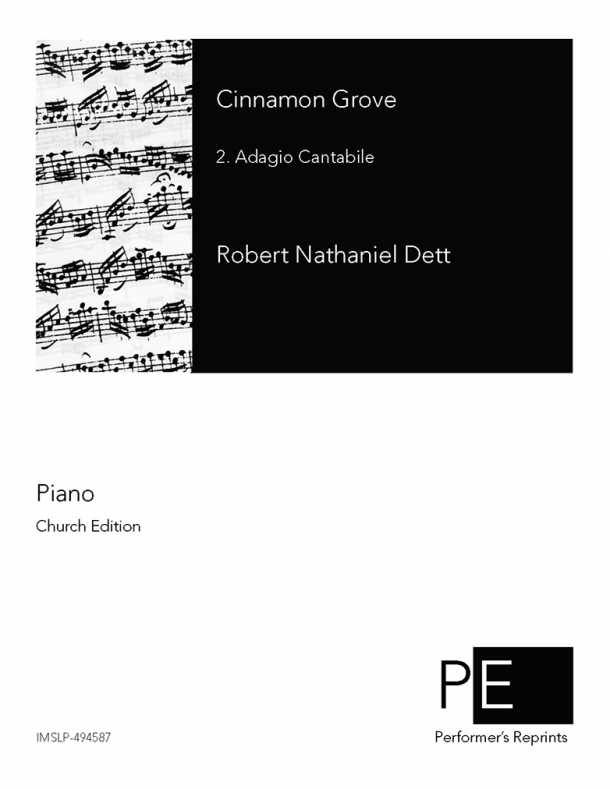Obscure Music Monday: Dett's Cinnamon Grove
Robert Nathaniel Dett (Oct. 11, 1882 - Oct. 2, 1943) was a composer, pianist, organist, and professor of music. Born in Ontario, Canada, he showed interest in music at a young age, and began piano lessons at five years old. The family moved to New York around the time Dett was ten years old, and a few years later he was playing piano for his church. He would later on study at the Oliver Willis Halstead Conservatory of Music, and continued studying piano at the Lockport Conservatory, before eventually attend the Curtis Institute of Music. At Curtis, Dett was introduced to the idea of using spirituals in classical music, like in the music of Antonin Dvorak. The music Dett heard reminded him of spirituals he'd learned from his grandmother, and he'd later on integrate folksongs and spirituals in to his music.
One Dett's later works is a four-movement work for piano, Cinnamon Grove. Written in 1928, it alludes to Dett's interest in poetry, as the first three movements are prefaced with some lines of poetry. In the first movement, Moderato molto grazioso ma con moto, he cites a few lines from John Donne's The Dream.
Dear Love, for nothing less than thee
Would I have broke this happy dream.
This movement is dreamy (unsurprisingly) with some hints of Impressionism in the harmonies.
In movement two, Adagio cantabile, the mood is peaceful and the writing rich. It's prefaced by Rabindranath's poem Gitanjali.
When thou commandest me to sing
it seems that my heart would break
with pride; and I look to thy face,
and tears come to my eyes.
The third movement, Ritmo moderato e con sentiment – Quasi Gavotte, is ever-moving, with driving themes throughout. A few lines from Henry Wadsworth Longfellow's poem Epimetheus preface it.
Have I dreamed? or was it real,
What I saw as in a vision.
When to marched hymeneal
In the land of the ideal
Moved my thought o'er Fields Elysian?
In the final movement, Allegretto, there are musical quotes from two spirituals from Dett’s 1927 volume of choral settings: Oh, the Winter’ll Soon Be Over and Run to Jesus. It's cheerful, and full of hope, with some boisterous moments throughout.
Thankfully there's a recording of this fantastic work for you to enjoy!



1 Comment